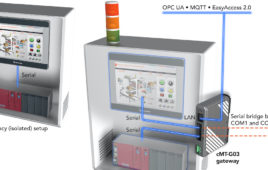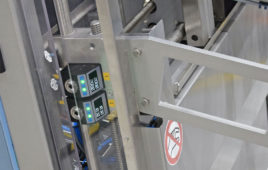Scientists at Yale have confirmed a 50-year-old, previously untested theoretical prediction in physics and improved the energy storage time of a quantum switch by several orders of magnitude. They report their results in the April 17 issue of the journal Nature.
High-quality quantum switches are essential for the development of quantum computers and the quantum internet — innovations that would offer vastly greater information processing power and speed than classical (digital) computers, as well as more secure information transmission.
“Fighting dissipation is one of the main goals in the development of quantum hardware,” said Ioan Pop, a postdoctoral researcher in applied physics at Yale and lead author of the paper. “A quantum switch needs to act reversibly without losing any energy. Our result is very encouraging for the development of superconducting quantum bits acting as switches.”
Superconducting quantum bits, or qubits, are artificial atoms that represent information in quantum systems. They also manipulate that information as they switch among states — such as “0,” “1,” or both simultaneously — under the influence of other qubits. But in switching states, they tend to lose energy, resulting in information loss.
In the Yale experiment, researchers demonstrated that a type of superconducting quantum bit can be immune to dissipation in presence of a quasiparticle — a microscopic entity that normally saps the energy of the qubit.
“We can engineer a system that is immune to quasiparticle dissipation,” Pop said.
The researchers used an artificial fluxonium atom as their qubit.
The experiment confirms by direct measurement a theoretical prediction made by Nobel Prize-winning British physicist Brian Josephson in the 1960s, namely that quasiparticle dissipation should vanish under certain conditions. Josephson junctions are superconducting devices with properties well suited for building quantum processing systems.
The results open new frontiers in areas related to quantum information and quantum measurements, the researchers said, providing both a strategy for building dissipation-immune quantum systems and a specific new device that could be adapted for better measuring properties of quasiparticles and understanding their origin and dynamics.
For more information visit http://www.yale.edu.
Filed Under: M2M (machine to machine)




